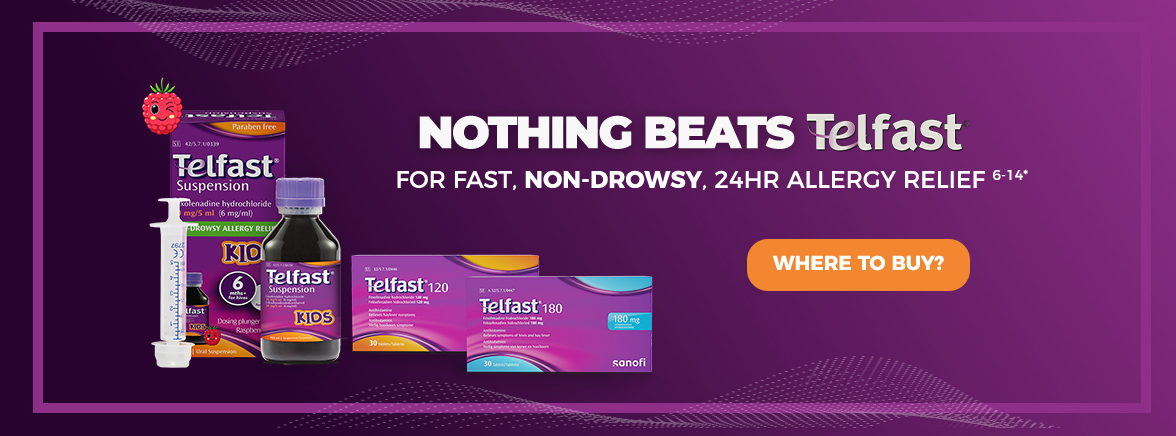FACTS ABOUT ALLERGY
Up to 4 out of 10 people around the world are suffering from allergies right now 1
What Is Allergy?
An allergy occurs when your body’s immune system sees a substance,
called an allergen, as harmful and overreacts to it.
2 This is an allergic reaction which causes the symptoms
that you experience. 2 Allergens can get into your body
in many ways to cause an allergic reaction. 2 Examples of
allergens include pollen, dust, mould, and animal dander.
In an attempt to protect your body, your immune system produces
antibodies that cause specific cells in your body to release
histamine into your bloodstream.
3
Histamine causes the symptoms of the allergic
reaction that you experience. 3
What are Allergic Symptoms?
The severity of symptoms during an allergic reaction can vary widely. Some symptoms of an allergic reaction include:2

Sneezing

Runny
Nose

Itchy
Eyes

Itchy
Nose

Itchy
Skin

Swelling
How Do Allergies Affect You?
Some people do not think their allergy symptoms are serious and
choose not to treat their allergy. 4 However,
untreated allergies can result in sinus or ear
infections and significantly impact your quality of life and
overall performance at school or work. 4,5 This is
because they can cause poor sleep quality, tiredness,
and sleepiness, which lowers your ability to manage your daily
activities:5

Adults with allergic rhinitis (hay fever) find it harder to
think and
function at work, suffer from greater absenteeism, and
experience
more work-related injuries. 5 They are more
irritable than healthier
people, and they find it harder to make important decisions.
5

School-aged children diagnosed with allergic rhinitis (hay
fever)
can do poorly in examinations and often cannot recall
information
taught during class as a result of difficulty concentrating,
caused
by the untreated symptoms of allergies. 5

Some allergies to foods like shellfish or peanuts, drugs or
insect
stings like honeybees or wasps can lead to a potentially
life-threatening reaction called anaphylaxis, which can be
fatal. 5
How Should Allergies Be Treated?
Allergy treatment often includes 3 treatment types: avoiding allergens, medication, and/or immunotherapy (which involves receiving an allergen via a shot or under the tongue). 4 Ultimately, the best way to avoid allergic reactions is to stay away from the substances/allergens that cause them. 4 You can also use over-the-counter medications like Telfast® or consult with your healthcare professional.
